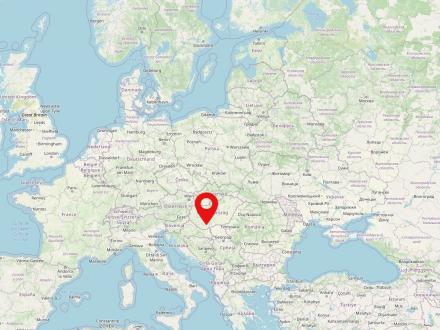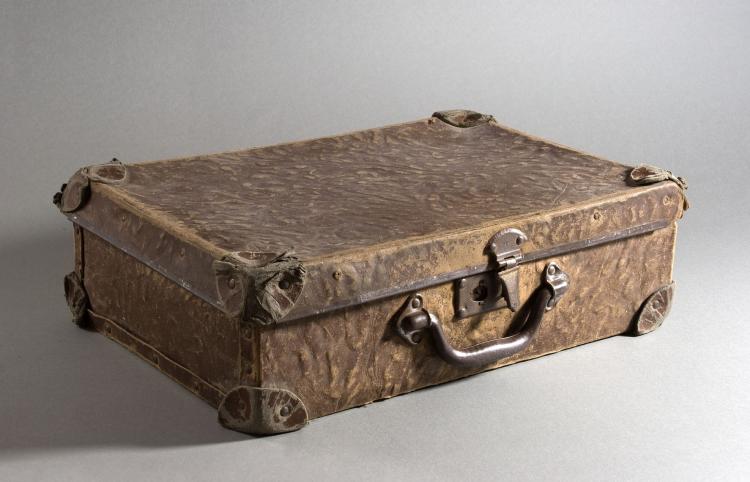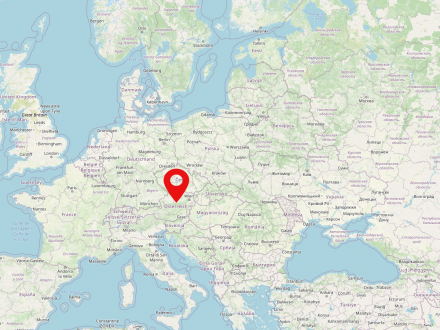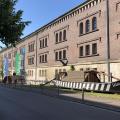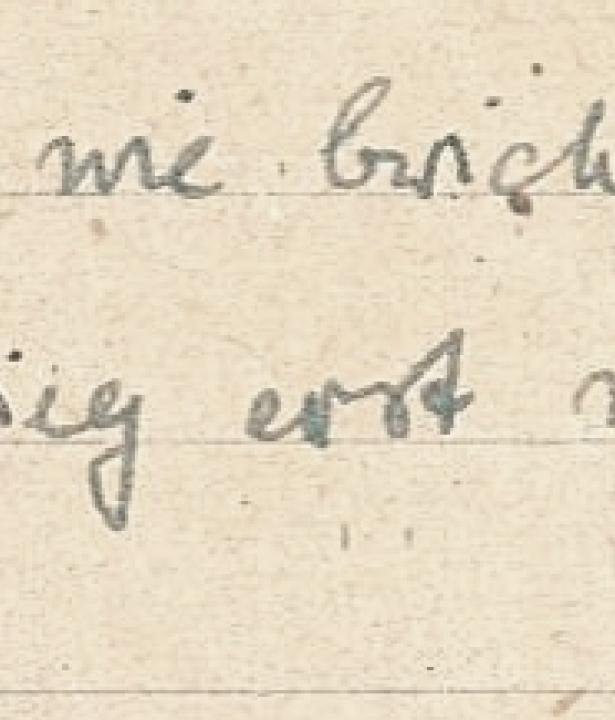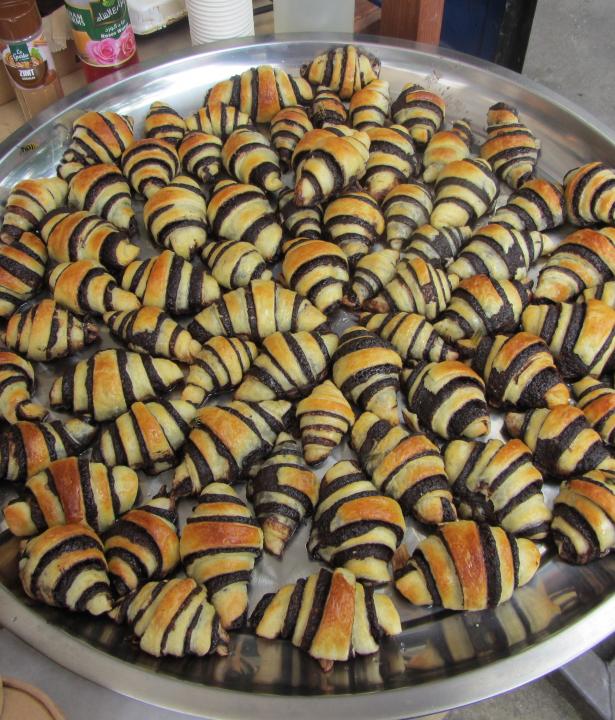On November 18, 1944, nine-year-old Elsa Beck flees the Hungarian village of Máriakéménd with her mother and sister. Elsa's mother allows her to take with her what she can carry herself. Elsa decides to take her school suitcase. Today, this is held in the Danube Swabian Central Museum in Ulm.
Text
Children in Hungary used to use a small cardboard suitcase as a school bag. Elsa Beck, who started school in 1942, also carries her schoolbooks in one of these. Her family belongs to the Hungarian German population in "", an area south of Lake Balaton. Only Germans live in her hometown of ), so lessons are held in German. The national language, Hungarian, is only taught from the third grade on.
Swabian Turkey
hun. Sváb-Törökország, deu. Schwäbische Türkei
Swabian Turkey is a German language island in southwestern Hungary and a historically important settlement area of German-speaking emigrant groups. Although they were only partly settlers from the Swabian region, the name of Swabian Turkey and at the same time the collective name of the so-called Danube Swabians was derived from them.
Máriakéménd
hrv. Kemed
Máriakéménd is a Hungarian village in Bóly County in Baranya County. In the years 1720 to 1741 German-speaking population groups were settled there, whose descendants were again forcibly resettled from the year 1947.


After the escape, 1948: Elsa Beck (back right) works in Germany as a child maid for the farming family with whom she lives. Donauschwäbisches Zentralmuseum, CC BY 4.0
After the escape, 1948: Elsa Beck (back right) works in Germany as a child maid for the farming family with whom she lives. Donauschwäbisches Zentralmuseum, CC BY 4.0
Text
The Second World War is taking place, but it seems very far away. The only thing missing for Elsa is her father, Johann. Although he is already 50 years old, the army has drafted him as a soldier. Since then, Elsa, her 20-year-old sister Rosa and their mother Augustine have been on their own.
Elsa Beck's carefree childhood ends on November 18, 1944, the day when most of the villagers leave for the West. Elsa's mother has delayed the decision to flee until this point, even though her husband has already warned her in several letters. But now, with a growing fear of the approaching front, she joins the others.
Mother and daughters can only take the bare necessities: clothes, bedding, some dishes, food. Elsa's mother allows her to choose what items she takes – but she needs to be able to carry it herself. Elsa chooses her doll and the small suitcase with her school books.
It takes eight days for the group of refugees to arrive in . The Becks experience the end of the war in Styria. For Elsa, schooling begins again. However, she doesn't really like using her little suitcase anymore. It's a sign for the locals that she is a refugee child, because in Austria schoolchildren use satchels.
Austria
deu. Österreich
Austria is a country in Central Europe populated by about 8.9 million people. The capital of the country is Vienna.
A year and a half later, Elsa is deported from Austria with her mother and sister – not back to Hungary, but to the Federal Republic. The three begin their new life as maids on a Swabian farm. Elsa has to take care of the farm family's children; she hardly has any free time like other students. Nevertheless, she feels more and more at home and even finds in the farmer a substitute for her father, who was lost in the war.
For decades, Elsa keeps the small suitcase and her schoolbooks as a memento. Finally, she gives the case and its contents to the Danube Swabian Central Museum in Ulm.
Text
English translation: William Connor
Externe Links


